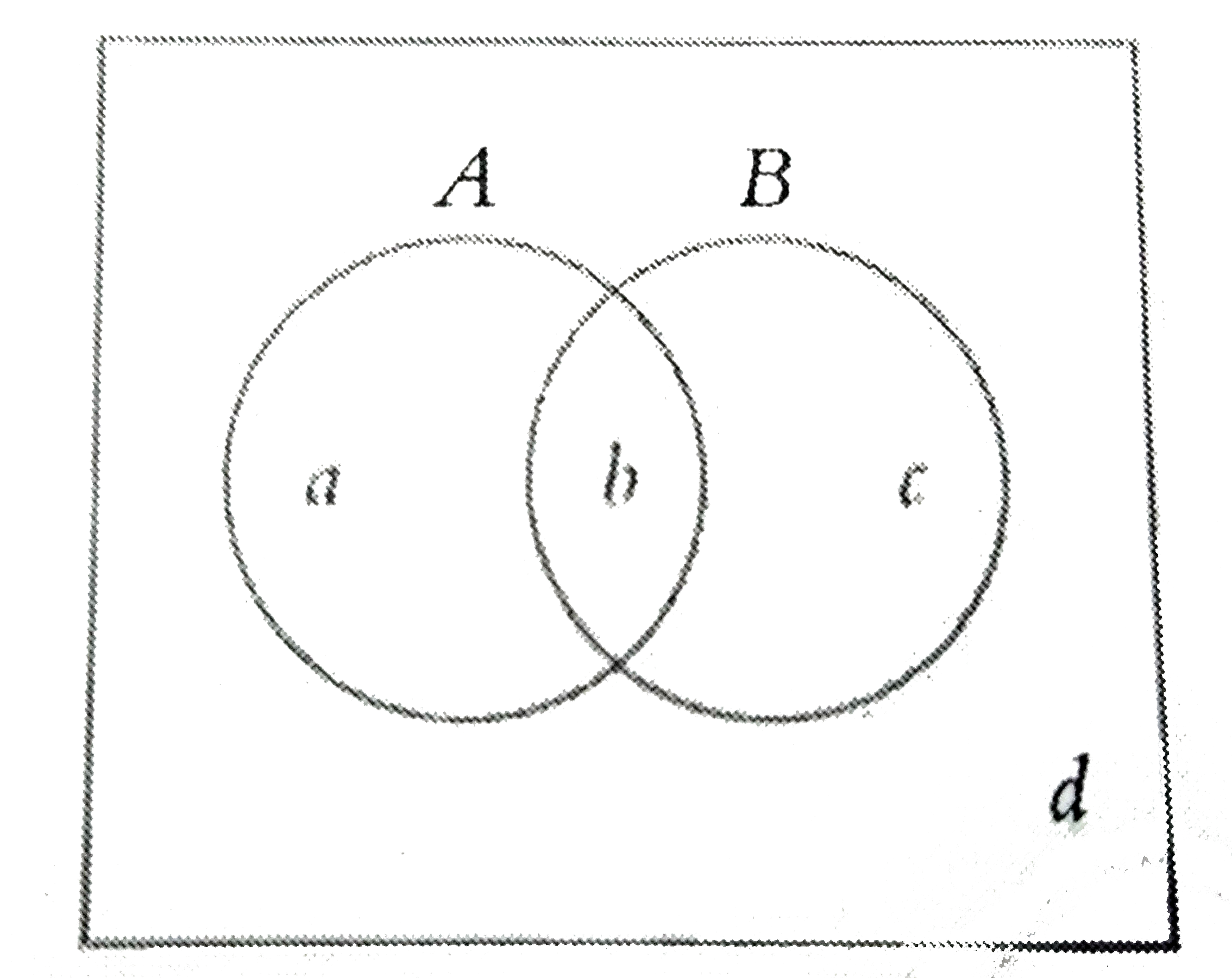If n(μ)=40,n(A'∩B')=6,n(A∩B')=10andn(B∩A)=16,then findn(A∩B)
Video Solution
Text Solution
n(only A) =n(A∩B)=10
n(only B)= n(B∩A)=16
n(neither A not B) =n(A'∩B')=6
∴a=10,c=16andd=6
a+b+c+d=40
b=40−32=8

|
Topper's Solved these Questions
- Set theoryBOOK - PEARSON IIT JEE FOUNDATIONCHAPTER - Set theoryEXERCISE - Very short Answer type question
28 Videos
- Set theoryBOOK - PEARSON IIT JEE FOUNDATIONCHAPTER - Set theoryEXERCISE - Short Answer type question
24 Videos
- RATIO AND ITS APPLICATIONSBOOK - PEARSON IIT JEE FOUNDATIONCHAPTER - RATIO AND ITS APPLICATIONSEXERCISE - ASSESSMENT TESTS (TEST 2)
12 Videos
- SIMPLE INTEREST AND COMPOUND INTEREST BOOK - PEARSON IIT JEE FOUNDATIONCHAPTER - SIMPLE INTEREST AND COMPOUND INTEREST EXERCISE - Level 3
9 Videos
Similar Questions
Knowledge Check
If n(A) = 20 , n(B) = 30 and n(A∪B)=45 then find n(A∩B)
A5B10C15D20If n(A) = 10 ,n(B) = 20 and n(A∪B)=15, then find n(A∩B) .
A5B10C15D20
If n(A∪B)=18n(A cap B)=5,n(B−A)=3,then find n(A∩B)
View SolutionIf n(μ) = 200 and n(A'∩B) = 120, then find n(A∪B)
View SolutionIf n(A )= 20 n(A∩B) = 10,and n(A∪B)=70then find n(B).
View SolutionIf n(A )= 20 n(A∩B) = 10,and n(A∪B)=70then find n(B).
View SolutionIf n (A) = 4 , n (B) = 6 , and n (A∪B)=8 , then find n(A∩B) .
View SolutionIf n(A∪B) = 120, n(A) = 70, n(A∩B) = 30, find n(B).
View Solution
